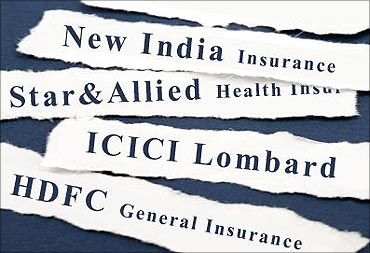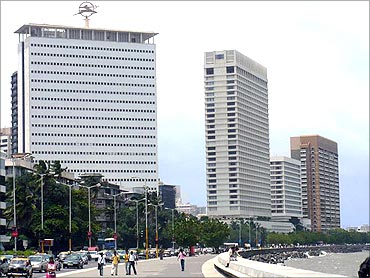 | « Back to article | Print this article |
Preventive healthcare needs incentive
The government has been promoting health insurance by way of tax incentives. Various bodies and health committees, like the CII, have made recommendations to the government to provide incentives to people who opt for preventive healthcare.
Chronic illnesses lead to loss to the economy and thus the government can look at promoting preventive healthcare.
The government can also look at encouraging corporates to engage their employees in making preventive healthcare a way of life, which is equally important as health insurance.
Through this budget, we look forward to various incentives whereby good high-end medical technology reaches the remote areas of our country.
We hope that this budget will further help us in our country's mission to wake up people to the concept of preventive healthcare and allow us to reach out to more and more people by making preventive healthcare "Available, Affordable, Accessible" to all.
Managing fiscal deficit biggest challenge
The Budget comes at a difficult time for the economy. The biggest challenge is to manage the fiscal deficit, especially revenue deficit and raise money for development projects in the infrastructure and social sectors. However, that is easier said than done in the current high inflation environment. Additional taxes are not pragmatic, but managing subsidies better may present a credible alternative.
Better-targeted subsidies will not only reduce costs but also ensure that those in real need of such incentives are most benefited. Inflation concerns may result in the Budget walking a tight rope to balance inflation with growth.
The Budget should introduce measures that encourage long-term savings by incentivising investors who invest in long-term saving instruments, such as insurance, through better taxation and policy frameworks.
Several national development projects are contingent on greater long-term funds mobilisation, and insurance companies are among the biggest mobilisers of long-term funds.
Apart from funds mobilisation it could also have other positive corollaries such as improving insurance penetration, which could be a panacea to mitigate challenges arising from the absence of a defined universal social security mechanism.
The safety net insurance provides will go a long way in reducing strain on individuals and the over-stretched governmental outreach frameworks and help better manage the ever ballooning social sector spending.
Agri sector needs modernisation
The infrastructure sector has gained a lot of momentum, and we expect the Finance Bill to take steps in order to promote long-term investing in this sector.
"At the same time, we believe the current growth will persuade the government towards stricter rules and procedures for clearances, importantly clearance on environmental issues.
"This will streamline the sector and its growth to a great extent.
"This year has seen an accelerated rate of inflation, and this is expected to grow further.
"With the focus on food supply situations, we expect the Finance Bill to provide incentives for modernisation of the agricultural sector and thereby increase the agricultural output.
"Overall, we expect the government to work towards fiscal management and growth of the economy, with a greater focus on rural economy."
Withdraw service tax on insurance policy
The service tax on insurance policy may kindly be withdrawn. This will reduce the financial burden in case of individuals as well as states which undertake massive health insurance programme for below poverty line families.
It is the middle income families, which mostly goes for private insurance policies who really struggle to meet both the ends. In the circumstances, if 10 per cent is added in their budget as service tax on policies, it will be an additional burden.
2. One other point which Finance Minister should consider is service tax being paid by the insurance companies on settlement of bills raised by the hospitals.
This naturally pushes the claims cost by 10 per cent. If the burning cost becomes more it is known that the burden will be passed on to the customer by way of additional premium.
3. The income tax benefit though is given; I feel that it should be more. In fact tax to the tune of 50 per cent can be given.
In other words, if an individual pays Rs. 7,000/- towards health insurance Rs. 3,500/- can straight away be deducted from the tax payable by the concerned individual. This will definitely act as incentive and also help the society.
Reduce impact of black money
I expect Pranab Babu to work on reducing the inflation, stabilising the interest rate and work on scheme to reduce the impact of black money in Indian economy."
Check rising inflation
For the 2011 budget, on a macro front, while the robust GDP growth and exports performance are positive news, mounting current account deficit and inflation needs to be addressed.
For the IT industry in particular, a more concrete definition of the timelines on the GST regime would be welcome as also a corporate tax rate reduction in the proposed DTC.
The relief on personal taxes in terms of hiking the base non-taxable limit and further rationalisation of tax slabs in the run up to the DTC implementation would help with possible continuation of the 10A-10B benefits under the STPI schemes. Small and medium size STPI units would welcome an extension of the tax benefits u/s 10AA."






